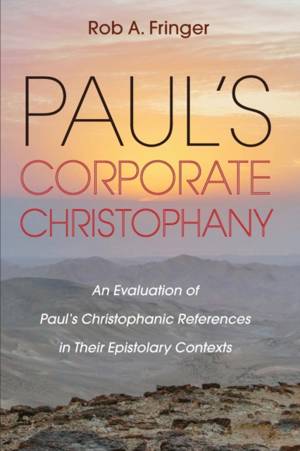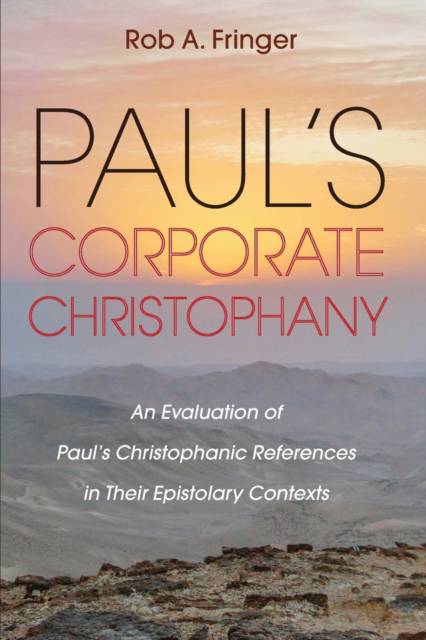
Door een staking bij bpost kan je online bestelling op dit moment iets langer onderweg zijn dan voorzien. Dringend iets nodig? Onze winkels ontvangen jou met open armen!
- Afhalen na 1 uur in een winkel met voorraad
- Gratis thuislevering in België vanaf € 30
- Ruim aanbod met 7 miljoen producten
Door een staking bij bpost kan je online bestelling op dit moment iets langer onderweg zijn dan voorzien. Dringend iets nodig? Onze winkels ontvangen jou met open armen!
- Afhalen na 1 uur in een winkel met voorraad
- Gratis thuislevering in België vanaf € 30
- Ruim aanbod met 7 miljoen producten
Zoeken
Paul's Corporate Christophany
An Evaluation of Paul's Christophanic References in Their Epistolary Contexts
Rob A Fringer
Paperback | Engels
€ 46,45
+ 92 punten
Uitvoering
Omschrijving
Paul's Christophany (i.e., his Damascus Road Experience) has been the subject of much scholarly analysis. However, treatments of this phenomenon, while widely varied, have tended to extract the various references from their literary contexts in order to reconstruct the event, to discover the foundations and content of Paul's Christology, or to analyze Paul's experience of conversion and/or call. The current study, focused on the undisputed Pauline epistles, evaluates how and why Paul employed the various Christophanic references in their particular literary and sociohistorical contexts. Through this assessment, the importance of Paul's Christophanic references as part of his larger arguments is established. It is shown how Paul uniquely shapes the various Christophanic references to fit the needs of his argument and through it, the needs of each community. Furthermore, this study demonstrates that Paul's Christophanic references do not primarily establish his apostolic status or assert his apostolic authority. Through this study, the corporate nature of Paul's Christophanic references becomes increasingly evident, and multiple general conclusions are drawn, which provide a possible glimpse into Paul's understanding of his Christophanic experience.
Specificaties
Betrokkenen
- Auteur(s):
- Uitgeverij:
Inhoud
- Aantal bladzijden:
- 250
- Taal:
- Engels
Eigenschappen
- Productcode (EAN):
- 9781532645280
- Verschijningsdatum:
- 28/02/2019
- Uitvoering:
- Paperback
- Formaat:
- Trade paperback (VS)
- Afmetingen:
- 152 mm x 229 mm
- Gewicht:
- 340 g

Alleen bij Standaard Boekhandel
+ 92 punten op je klantenkaart van Standaard Boekhandel
Beoordelingen
We publiceren alleen reviews die voldoen aan de voorwaarden voor reviews. Bekijk onze voorwaarden voor reviews.











